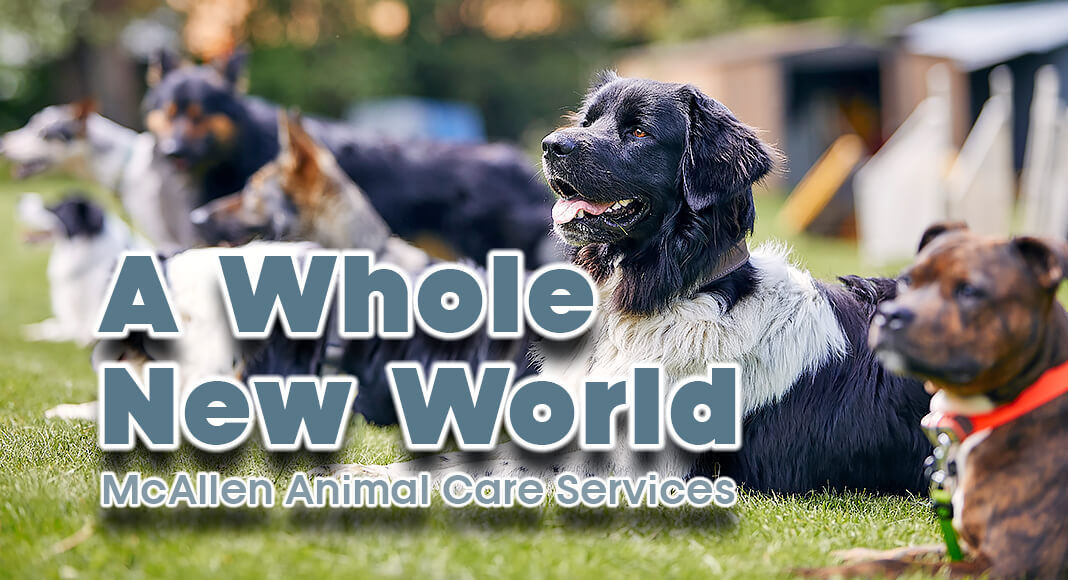
Texas Border Business
McALLEN, Texas – The City of McAllen is changing the philosophy, actions and name of Animal Control, previously under the McAllen Police Department’s purview. While the duties and responsibility remain the same – enforcingcity and state codes, rules, and regulations and investigating animal neglect and cruelty cases – the division’s new name and department will better identify their approach to the welfare of animals in McAllen. The Animal Care Services will now be housed under the McAllen Health & Code Enforcement Department.
“Mahatma Ghandhi once said ‘The greatness of a nation and its moral progress can be judged by the way its animals are treated,’” said McAllen City Manager Roel “Roy” Rodriguez, P.E. “For the City of McAllen, our goal is to stop the overcrowding at PVAS and to help find homes for all stray animals. This requires a change in the way we care for the animals in our city, both by our approach and together with our residents, to ensure that there are no longer unwanted, abused or unloved pets who have to be euthanized, only to make room for more unwanted, abused or unloved pets.”
The biggest change in the new philosophy for Animal Control Services is how the division will approach picking up strays or suspected animal abuse. Many pets often get loose and if picked up and dropped off at Palm Valley Animal Society, the City of McAllen’s partner animal shelter facility, pets are more often than not, unable to be found and returned to their owner. From now on, residents are asked to try to shelter loose pets and try to identify or locate the pet’s proper owner. This will help prevent over-crowding at PVAS.
If anyone witnesses an animal being abused, neglected, or an animal attack in progress, they call 9-1-1 immediately. If residents are concerned about an animal being neglected or suspect abuse, they should call 3-1-1, McAllen’s 3-1-1 Customer Service Call Center.
Calls for abuse include: animal in danger, injured, abused or neglected; animal attack against a person; aggressive animal reasonably going to attack a person; wildlife that is sick, injured; unsanitary conditions; failure to restrain or follow McAllen’s leash law; barking dog nuisance; dead animal pick-up on public right of way or roads; and illegal animal sales.
Another change in the approach to animal care and protection is the responsibility of the community and pet owners. Owning a pet is a privilege and should result in a mutually beneficial relationship. The benefits of pet ownership come with responsibilities.
These include:
- Lifelong care of the pet. This means committing to the relationship for the pet’s entire life.
- Selecting a pet that is suited to home and lifestyle and avoiding impulsive decisions.
- Recognizing that owning a pet(s) requires an investment of time and money.
- Keeping only the type and number of pets for which can be provided with an appropriate and safe environment. This includes appropriate food, water, shelter, health care and companionship.
- Animals that spend extended periods of time outside require habitats that protect their health, safety, and welfare. Outdoor confinement of an animal should include provisions to minimize distress or discomfort to the animal, and assure access to appropriate food, water, and shelter from extreme weather conditions.
- Ensuring pets are properly identified (i.e., tags, microchips, or tattoos) and that their registration information in associated databases is kept up-to-date.
- Adhering to local ordinances, including licensing and leash requirements.
- Helping to manage overpopulation by controlling pet(s)’ reproduction through managed breeding, containment, or spay/neuter. Establishing and maintaining a veterinarian-client-patient relationship.
- Providing preventive (e.g., vaccinations, parasite control) and therapeutic health care for the life of the pet(s) in consultation with, and as recommended by veterinarian.
- Socialization and appropriate training for pet(s) to facilitate their well-being and the well-being of other animals and people.
- Preventing pet(s) from negatively impacting other people, animals and the environment. This includes proper waste disposal, noise control, and not allowing pet(s) to stray or become feral.
- Providing exercise and mental stimulation appropriate to pet(s)’ age, breed, and health status.
- Include pets in planning for an emergency or disaster, including assembling an evacuation kit.
- Making arrangements for the care of pet when or if unable to do so.
- Recognizing declines in pet(s)’ quality of life and making decisions in consultation with veterinarian regarding appropriate end-of-life care (e.g., palliative care, hospice, euthanasia).














